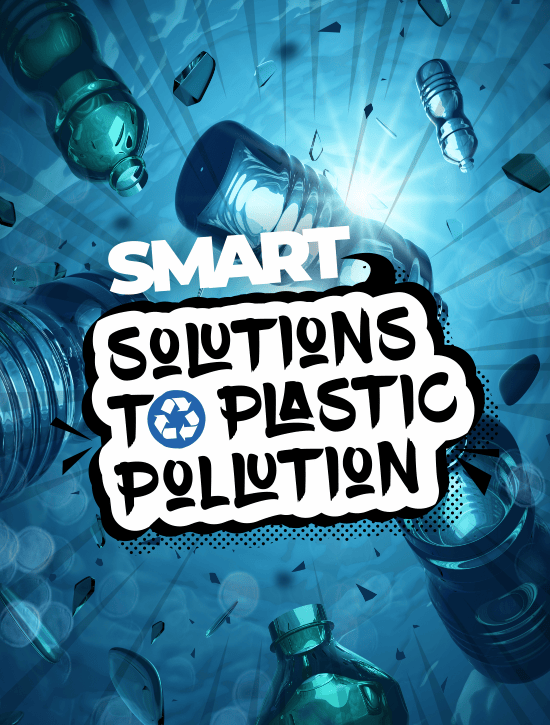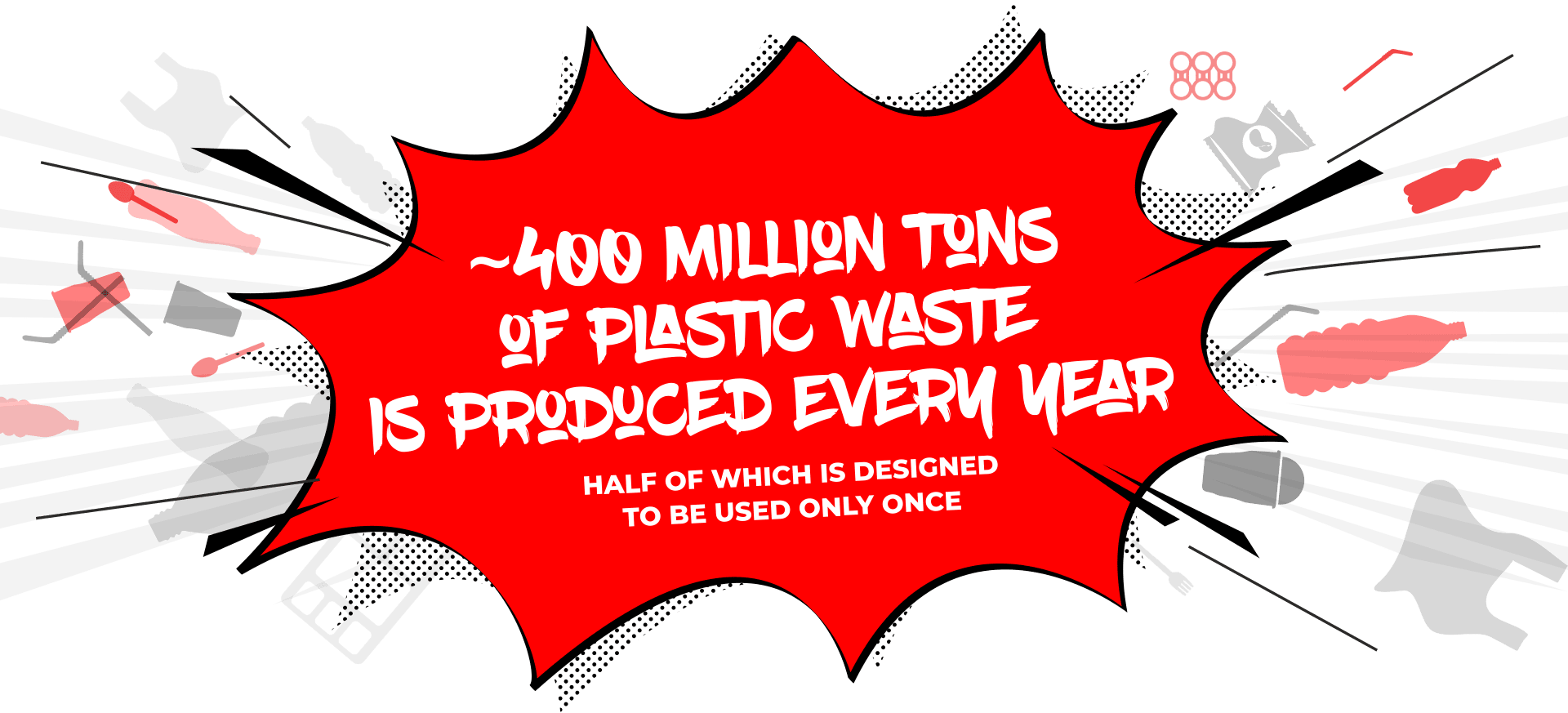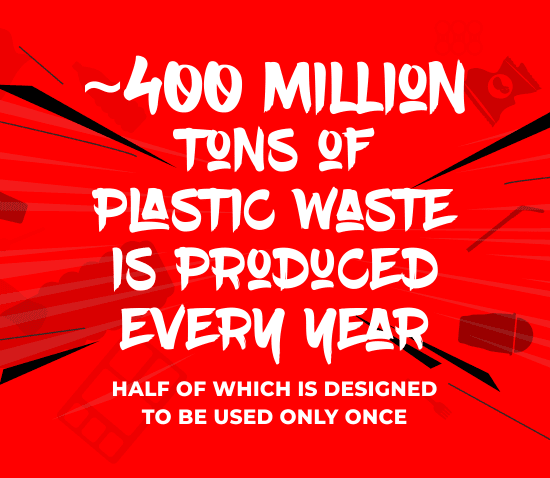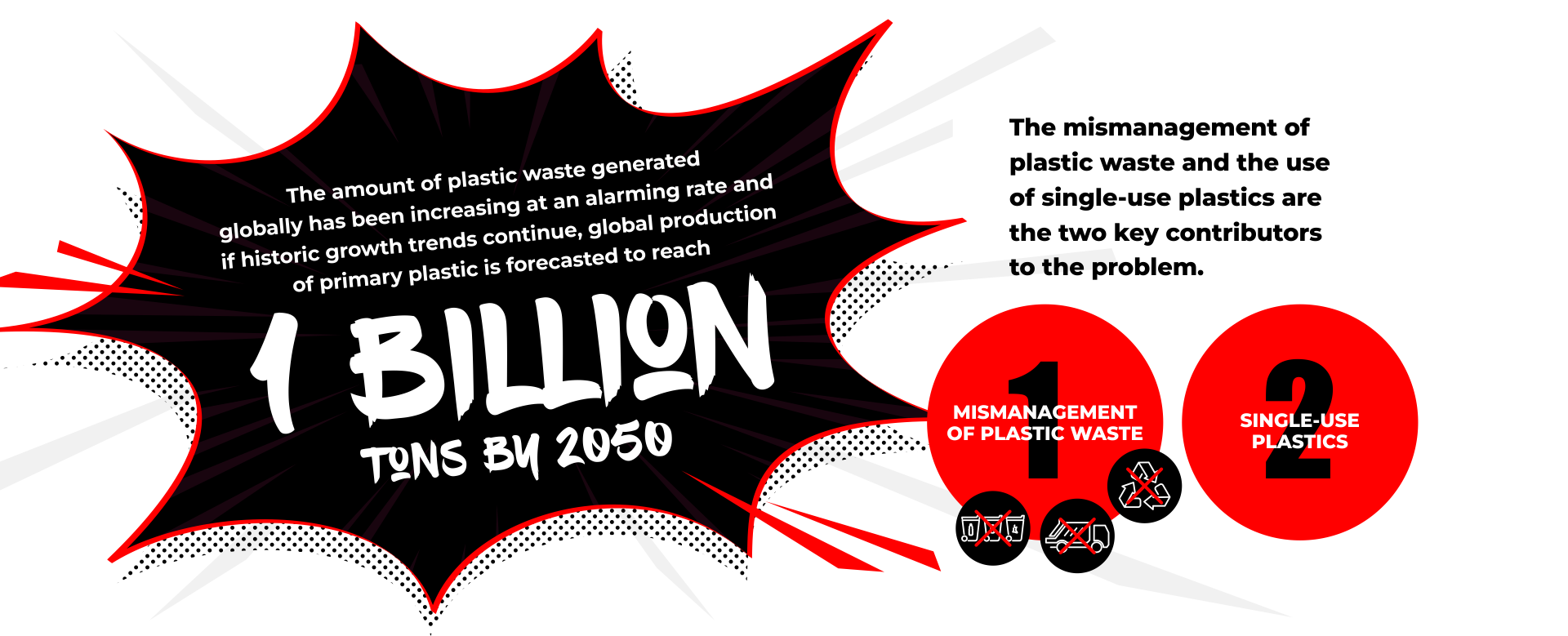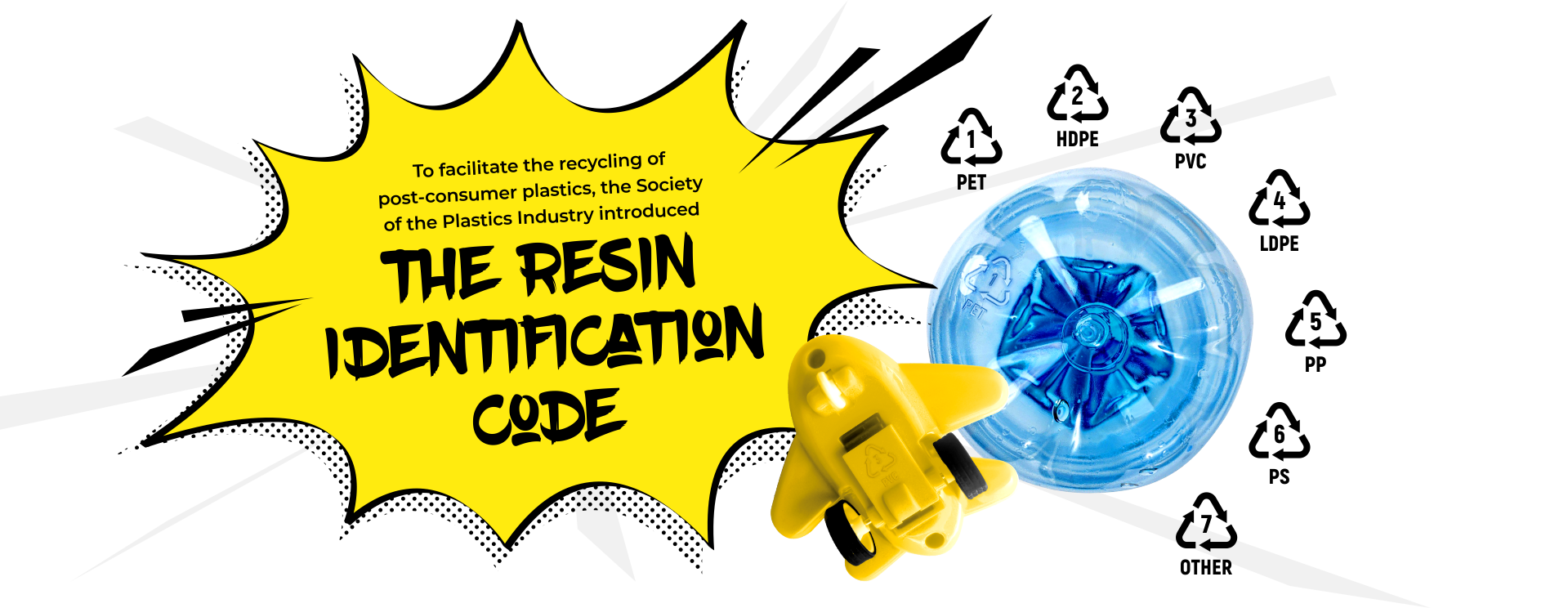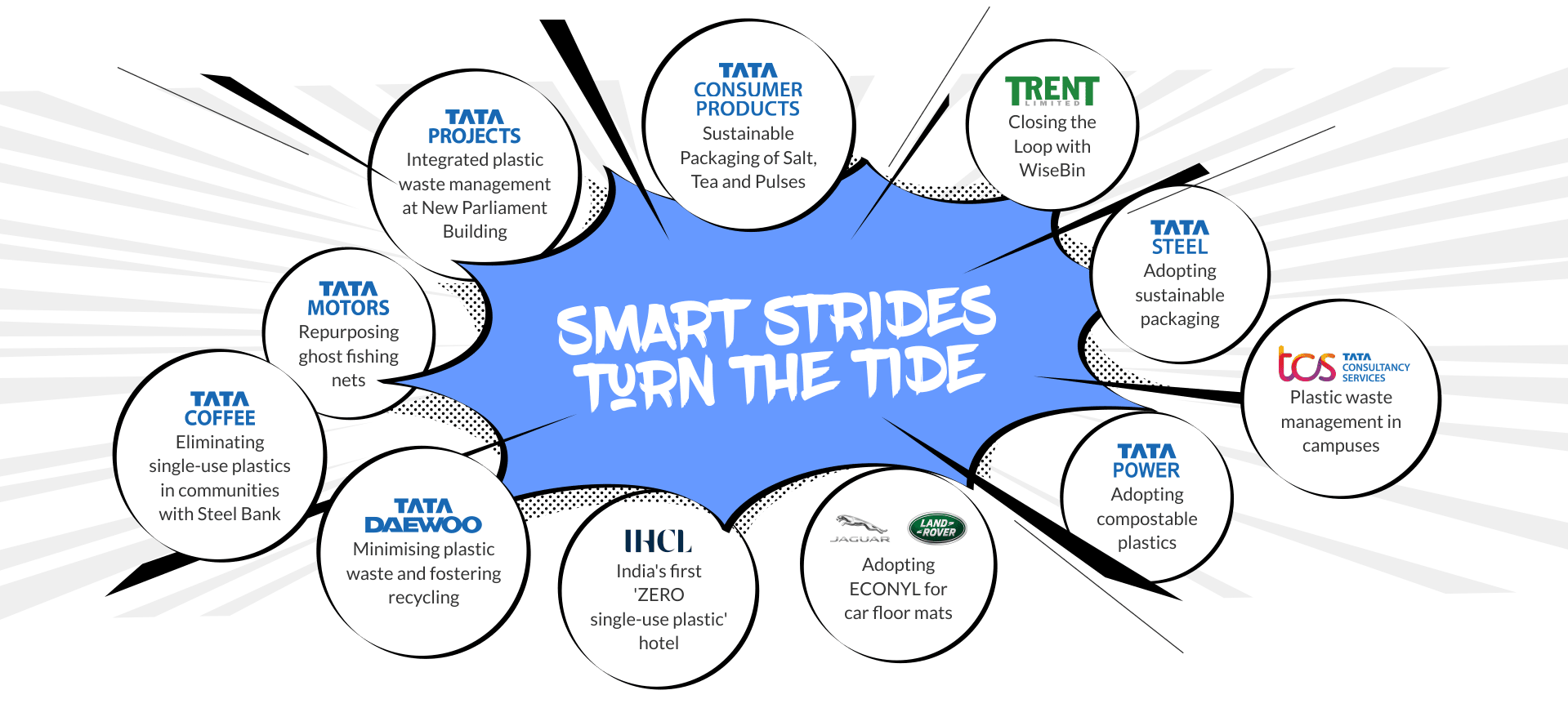

The growing problem of plastic pollution requires a better understanding of plastics to effectively address it. What is plastic? Plastic is a
polymeric material that has the capability of being moulded or shaped, usually by the application of heat and pressure, making it suitable
for a wide range of products.
While we generally term all of them as plastics, it is important to know that all plastics are not the same. The Resin Identification Code
(RIC) system categorises plastics into seven different types, including PET, HDPE, PVC, LDPE, PP, PS, and Others. Each type has different
characteristics and uses, such as PET being used for water bottles and soft drink packaging, HDPE for grocery bags and shampoo bottles,
and PVC for plumbing pipes and vinyl flooring. Most important of all, each one has a different recyclability quotient.

